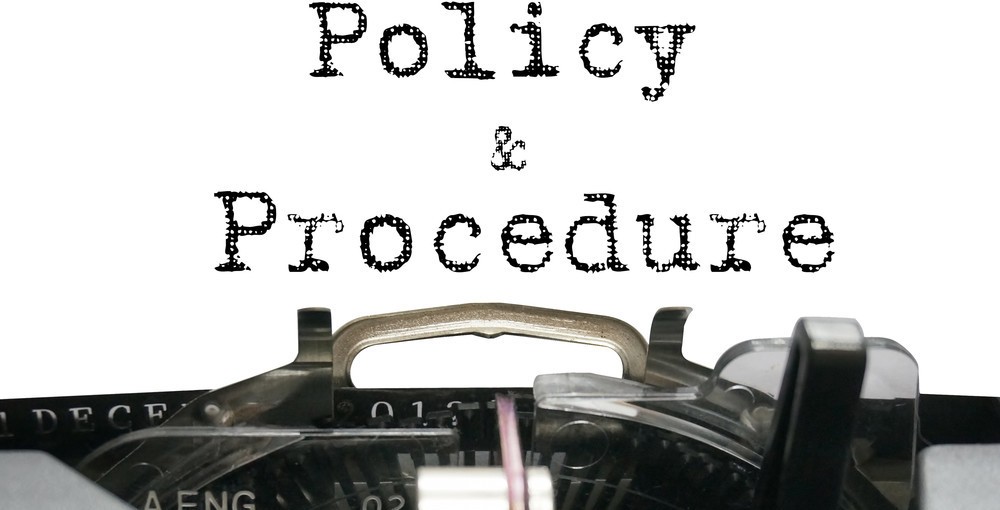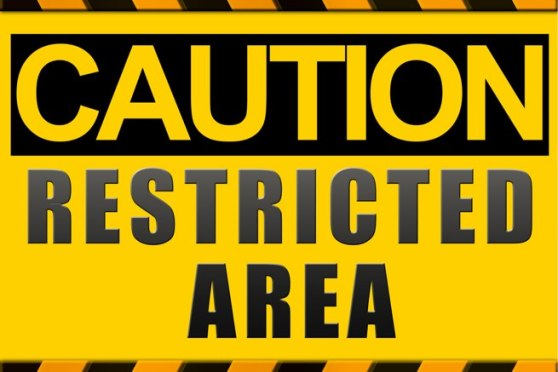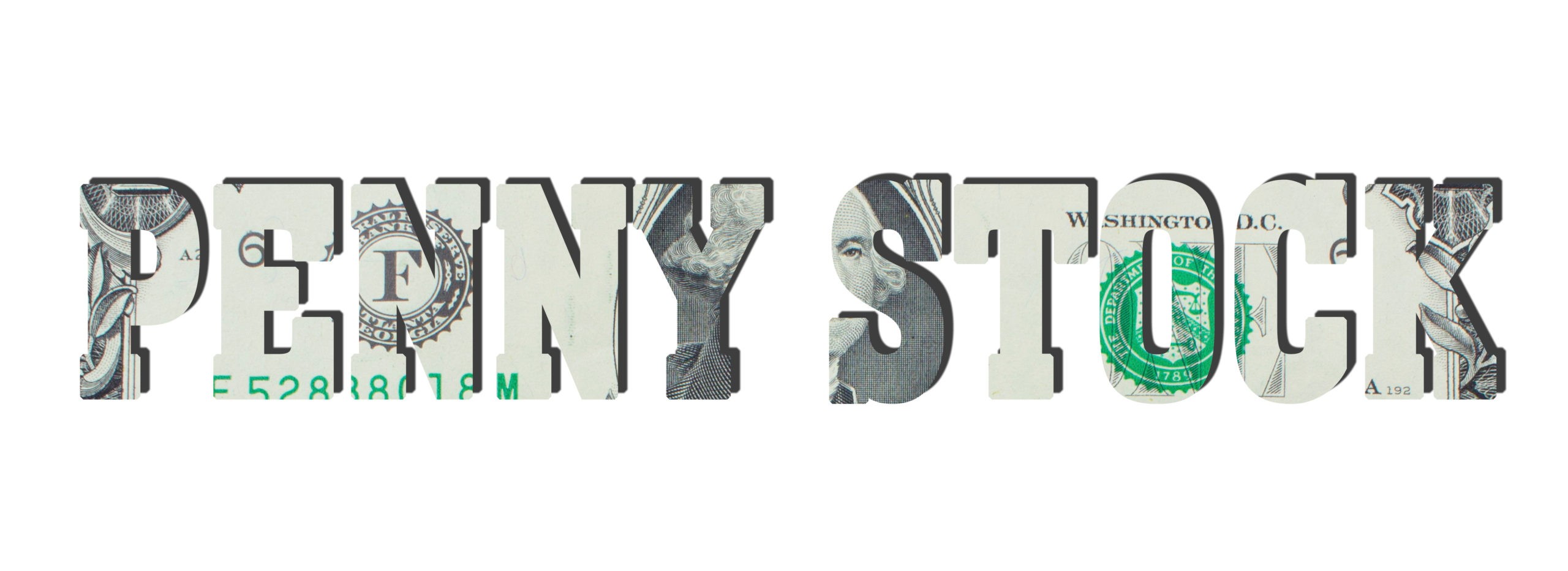SEC Questions Starbucks’ Accounting Policies

Starbucks’ stock fell today after news broke that the Securities and Exchange Commission sent a letter questioning the way that Starbucks recognizes its revenue. New accounting guidelines were implemented at the end of 2018 that is affecting many public companies. In Starbucks’ case, the SEC wanted clarification as to the reporting of a number of different deals that the company has made. One such deal was a nearly $7 billion agreement with Nestle that would allow them to sell Starbucks products in grocery stores. Another issue was with breakage, which is revenue that comes from unused gift cards or prepaid services.
“When there are issues around revenue recognition, the SEC takes it very seriously because it’s an area that management can manipulate,” said Derryck Coleman, research manager at Audit Analytics. The Wall Street Journal also reported that as of the end of June, 50 other companies have also received letters from the SEC questioning their accounting methods. The SEC explained that companies need to be thorough enough in their reports to ensure that investors are aware of where revenues are coming from, and what the true financial state of the company looks like. Read More
Form 8-A and Form 10 Registration Statements – Securities Lawyer 101
Form 10 and Form 8-A After Securities Act Registration
Once a company completes the filing of its Form S-1 registration statement or Form 1-A offering circular under the Securities Act of 1933, as amended (the “Securities Act”) for an initial public offering (IPO) or direct public offering (DPO), it can file a registration statement under the Securities Exchange Act of 1934 (“Exchange Act”). Long form registration on Form 10 or short form registration on Form 8-A are used to register a class of securities pursuant to Section 12(g) of the Exchange Act.
Form 10 and 8-A can be used to register both debt and equity securities. Upon effectiveness, the issuer becomes subject to SEC reporting requirements. This is different from a Securities Act registration, in which a company registers a certain number of a class of securities (debt or equity) for a particular public distribution. Read More
Leading Vaping Company Juul Warned About its Practices

According to CNBC, the FDA has slammed vaping company Juul for illegal marketing practices and is threatening fines and seizures against the company. Juul has been claiming that its vapes/e-cigarettes are healthy alternatives to cigarettes, but it turns out that might not be the case.
Acting FDA Commissioner Ned Sharpless, M.D. said in a statement posted on the FDA’s website, “Regardless of where products like e-cigarettes fall on the continuum of tobacco product risk, the law is clear that, before marketing tobacco products for reduced risk, companies must demonstrate with scientific evidence that their specific product does in fact pose less risk or is less harmful. JUUL has ignored the law, and very concerningly, has made some of these statements in school to our nation’s youth.” Further, according to CNN, “In November, the FDA revealed that vaping had increased nearly 80% among high schoolers and 50% among middle schoolers since a year earlier. Public health experts have said that Juul has largely propelled the rise, commanding about 75% of the e-cigarette market in the United States.” Read More
Infamous Former Pharma CEO Martin Shkreli Sues Investor from Prison
Martin Shkreli, who gained infamy in 2015 for buying the drug Daraprim, an antiparasite that costs pennies to make, and raising its price to $750 per pill, then later doing all sorts of crazy things, is back at it again, this time from prison.
According to CNBC, Shkreli “filed suit in federal court in Brooklyn against a Florida man, accusing him of fraudulently inducing Shkreli into signing a promissory note that has left him owing $420,000 to the man’s father.” Shkreli claims that the man unfairly pressured him into signing the note, and that the note’s usurious interest makes it invalid under New York law. But as Debra Guzov, the attorney for the defendant George Yaffe points out, Shkreli’s claim is “ironic,” because “the note in question was prepared by Martin Shkreli, so he’s complaining about a document that he actually drafted.” Read More
Public Company SEC Reporting Requirements – Form S-1 Disclosures
Once the SEC staff declares your company’s Securities Act registration statement on Form S-1 effective, the public company becomes subject to the SEC’s reporting requirements under the Securities Exchange Act of 1934. Public company reporting reporting requirements after a Form S-1 is effective require consideration before going public. Public company reporting requirements include aannual reports on Form 10-K, quarterly reports on Form 10-Q and current reports on Form 8-K with the SEC on an ongoing basis.
If a public company qualifies as a “smaller reporting company” or an “emerging growth company,” it will be eligible to follow scaled down SEC reporting requirements for its reports.
Once a public company begins compliance with SEC reporting requirements, it will be required to continue reporting unless it satisfies one of the following “thresholds,” in which case its filing obligations are suspended: Read More
When Private Placements Go Public – Rule 506-c Attorneys
Rule 506 of Regulation D of the Securities Act of 1933 (the “Securities Act”) provides for a private placement exemption from federal securities registration which is increasingly being used by companies seeking to raise capital prior to going public. While the term “private offering” leaves much to the imagination, the Securities Act provides substantial guidance about the circumstances in which an offering will be deemed a private placement.
Most private placements are made pursuant to Regulation D of the Securities Act. Rule 506 provides two distinct offering exemptions each with unique requirements. Companies are not required to advertise, and if that is their choice, they may use the prior Rule 506 which is now Rule 506(b), which does not allow solicitation of any kind. If they wish to advertise, they must comply with Rule 506(c) which permits general solicitation advertising, but excludes non-accredited investors from participation in the offering. In addition to Rule 506(c) offerings, issuers must take reasonable steps to verify whether purchasers are accredited investors. As explained below, the SEC has suggested several methods that companies may use to verify accredited investor status.
Accredited Investor Status Under Rule 506(c) l Securities Lawyer 101
Rule 506 is the most commonly used exemption of the Regulation D of the Securities Act of 1933, as amended (the “Securities Act”). Issuers conducting Rule 506 Offerings, issuers may use general solicitation and advertising in their securities offerings so long as certain requirements are met including that the issuer take reasonable steps to confirm that each investor is an accredited investor as defined by Rule 506 of Regulation D. Rule 506(c) includes “disqualifying events” for “covered persons” which prevent the issuer from relying on the Rule 506 exemption. This post summarizes how issuers can determine accredited investor status in Rule 506(c) offerings.
Overview of Rule 506(c)
Rule 506(c) allows an issuer to use general solicitation and advertising to sell its securities if the issuer must take reasonable steps to verify that investors are accredited investors.
Under Rule 501 of Regulation D, an accredited investor is any person who comes within any of the following categories, or who the issuer reasonably believes comes within any of the following categories, at the time of the sale of the securities to that person: Read More
Smooth Sailing For General Solicitation Under Rule 506(c) – Going Public Lawyers
 Rule 506(c) fundamentally changes how private placements will be conducted, by allowing issuers to engage in general solicitation and advertising if they comply with the Rule’s specific requirements. The advantages offered by Rule 506(c) are significant for issuers who comply with its inflexible but adaptable requirements. In order to ensure smooth sailing and compliance with the new rule, issuers should understand certain basic requirements of the exemption.
Rule 506(c) fundamentally changes how private placements will be conducted, by allowing issuers to engage in general solicitation and advertising if they comply with the Rule’s specific requirements. The advantages offered by Rule 506(c) are significant for issuers who comply with its inflexible but adaptable requirements. In order to ensure smooth sailing and compliance with the new rule, issuers should understand certain basic requirements of the exemption.
The Checklist below sets forth the most significant items the issuer should know about Rule 506(c). Read More
What is an Exempt Direct Public Offering? Rule 506(c) Offering Attorneys
The Direct Public Offering plays an important role in the going public process. Direct Public Offerings provide flexible options for issuers and allow the issuer to structure its going public transactions a variety of ways. Rules adopted pursuant to the JOBS Act, make an exempt Direct Public Offering an appealing and uncomplicated method of raising capital.One of the most important aspects of the going public process involves deciding the terms of the offering that will be presented to investors. The terms of a company’s direct public offering could have future impacts on its business. Investors want to know they will have an exit strategy in the future. This exit strategy can be accomplished a number of ways.
What is a Direct Public Offering?
Direct Public Offerings are not complicated. They are simply securities offerings sold by a company without an underwriter. Direct Public Offerings allow companies to structure their offerings a variety of ways. Direct Public Offerings can include equity, debt, revenue share or royalty payments, memberships, and other securities. Offerings with common shares can pay dividends, offer different classes of shares, limit voting or be structured a number of ways. Debt offerings can be convertible or secured by the company’s assets, revenues or other criteria. Direct Public Offering structures are endless. Read More
Securities Offering Exemptions – SEC Concept Release
SEC Concept Release on Harmonization of Securities Offering Exemptions

In the wake of the stock market crash of 1929, the public had lost confidence in the entirely unregulated U.S. markets. Congress sought to restore it by creating a regulatory structure. The first step taken was passage of the Securities Act of 1933 (“Securities Act”), which required issuers of securities to provide accurate information about their business, the securities they sold, and the risks involved in investing in those securities. The following year, the Securities Exchange Act of 1934 (“Exchange Act”) was signed into law. The Exchange Act created the Securities and Exchange Commission (“SEC”), whose mission was and is to protect investors; maintain fair, orderly, and efficient markets; and facilitate capital formation.
Since the 1930s, the Securities Act and the Exchange Act have been amended and expanded many times, but they are still the principal laws that govern the activity of the SEC and the regulation of our capital markets. One of the agency’s chief activities is “rulemaking”: from time to time, it proposes new rules whose purpose is to accommodate developments in the marketplace, new laws, new technologies that affect how the markets operate, and more. Proposed rules are preceded by “concept releases,” which explore whether there’s a need for a new rule, and solicit comment from market participants and the general public. Read More
Penny Stock Scalping 101 – Securities Lawyer 101
Stock scalping refers to the illegal and deceptive practice of recommending that others purchase a security while secretly selling the same security. In recent years, the Securities and Exchange Commission (the “SEC”) and Department of Justice have brought an increasing number of cases alleging securities violations for stock scalping activity. Most often stock scalping occurs in connection with stock promotion or penny stock investor relations activity.
In these schemes, investor relations paid in securities are often engaged in stock scalping activity. Other times, insiders may hire or cause third parties to hire investor relations providers to increase the price and volume of an penny stock issuer’s stock so that they can secretly sell their securities during the investor relations campaigns. Read More
SEC Form D Requirements, Regulation D, Notice of Sales
Whether or not a company is selling shares to accredited or non-accredited investors in its private placement offering under Regulation D, it must file a Form D – Notice of Sales with the Securities & Exchange Commission (the “SEC”). Because a Form D must be filed through SEC’s Electronic Data Gathering, Analysis, and Retrieval Filer Management System (“EDGAR”), the issuer must obtain Edgar filer codes.
Edgar filer codes are obtained by filing a Form ID with the SEC. Form ID requires very basic information about the issuer. The SEC requires that the Form ID be manually signed and notarized to ensure that an authorized signatory is submitting the form on the company’s behalf. Permissible Form ID signatories include a company officer or director or an attorney acting pursuant to a power of attorney. Read More
SEC Form 8-K Current Reports, Filing Requirements l Securities Lawyer 101
Private companies going public should be familiar with the requirements of Form 8-K. Once a company completes its going public transaction and its Form S-1 is effective, it is required to comply with the SEC’s periodic reporting requirements.
These requirements include the obligation to report certain material events on Form 8-K within four days of the triggering event. Current Reports on Form 8-K provide investors with current information to enable them to make informed investment decisions.
Form 10-Q Quarterly Reports, Filing Requirements l Going Public Lawyer

Publicly traded companies with a class of securities registered under Section 12 or subject to Section 15(d) of the Securities Exchange Act of 1934, as amended (“Exchange Act”), are subject to the SEC’s periodic and current reporting requirements of Section 13 or 15(d) of the Securities Exchange Act. The Exchange Act contains ongoing disclosure requirements that provide investors with current information on an ongoing basis. These include an obligation to file periodic reports on Form 10-K and Form 10-Q and current reports on Form 8-K with the Securities and Exchange Commission (“SEC”). Quarterly reports on Form 10-Q are required for three of the company’s quarterly periods. Read More
What is an Accredited Investor? Securities Lawyer 101

The Dodd-Frank Wall Street Reform and Consumer Protection Act (“Dodd-Frank”) amended the definition of an “accredited” investor to exclude the value of an investor’s primary residence when determining whether the net worth of that person (or joint net worth with his or her spouse) exceeds the $1 million net worth test. For purposes of calculating net worth in determining status of accredited investors, the value of an investor’s primary residence may not be included.
The calculation of an accredited investor’s net worth also excludes the value of any mortgage or other debt secured by an investor’s primary residence from being deducted as a liability for an investor’s net worth provided that the debt does not exceed the fair market value of the primary residence. If the debt exceeds the fair market value of the investor’s primary residence, the excess must be included as a liability in calculating the individual’s net worth. Accredited investor status is determined at the time of the sale of securities to the investor. Read More
S-1 Registration Requirements, Filing Form S-1, S-1 Offering, S-1 Lawyers
The process of “going public” with a Form S-1 registration statement is complex and at times precarious. Private companies going public should consider Form S-1 filing requirements when contemplating their going public transaction. Private companies seeking to raise capital often file a registration statement on SEC Form S-1 to meet certain requirements of the Financial Industry Regulatory Authority when going public. Upon filing, a Form S-1 is reviewed by the Securities and Exchange Commission, who may render SEC Comments. Once a Form S-1 is declared effective by the SEC, the company becomes subject to SEC reporting requirements.
All companies qualify to use and must comply with Form S-1 registration statement requirements. Unlike a Form 10 registration statement which registers a class of securities, Form S-1 registers specific securities offerings or transactions and it does not become effective until all SEC comments have been resolved. Private companies going public should be aware of the expansive disclosure required in registration statements filed with the SEC prior to making the decision to go public. Companies conducting securities offerings should also be familiar with the Form S-1 quiet period and Form S-1 risk factor requirements.While going public offers many benefits it also comes with risks and quantities of regulations with which issuers must become familiar. It is important for issuers to have an experienced securities attorney to help navigate through the process and deal with the Securities & Exchange Commission (“SEC”), Financial Regulatory Authority (“FINRA”) & Depository Trust Company (“DTC”). Upon completion of a going public transaction, the company is subject to the regulations that apply to public companies, including those of the Securities Act of 1933, as amended (“Securities Act”) and Securities Exchange Act of 1934, as amended (“Exchange Act”).
This blog post addresses common questions we receive about the going public process using Form S-1.
Q. What does it mean for a company to Go Public with Form S-1?
A. Going public often refers to the process of a company filing a registration statement with the SEC to register its securities and become an SEC reporting company. Other times going public may mean the filing a Form 211 with FINRA to obtain a ticker symbol for quotation on the OTC Markets OTC Pink Sheets without filing a registration statement with the SEC. Read More
Dormant Shell Companies For Reverse Mergers Suspended by the SEC While Delinquent Filers Run Wild
We’ve written several times about reverse mergers and Operation Shell Expel. Shell Expel is one of the Securities and Exchange Commission’s most successful enforcement initiatives to combat the use of shell companies for reverse mergers. Its object is to render useless and worthless dormant shell companies that might otherwise be hijacked, used in reverse mergers, and ultimately pumped and dumped. These companies are a real problem for the agency. If an issuer that’s an SEC registrant is abandoned by management, after a couple of years the SEC’s Enforcement Division can bring an administrative proceeding to revoke registration. Most targeted companies find they can’t really object, and when an initial order becomes effective, the public shell company becomes a private entity.
Going Public – Regulation A+ – IPO Alternative
Regulation A+ is designed to facilitate smaller companies’ access to capital by providing an alternative to direct public offerings/DPO’s and initial public offerings/IPO’s. Regulation A+’s new rules provide investors with more investment choices and issuers with more capital raising options during their going public transactions. Regulation A+ provides a workable alternative to an initial public offering/IPO by allowing companies to raise capital without an underwriter and without filing a full blow S-1 registration statement with the SEC.
Regulation A+ expands existing Regulation A. Existing Regulation A provides an existing exemption from registration for smaller issuers of securities. Regulation A+ offerings can be used in combination with direct public offerings and initial public offerings as part of a Going Public Transaction. The exemption simplifies the process of obtaining the seed stockholders required by the Financial Industry Regulatory Authority while allowing the issuer to raise initial capital. Read More
Form F-1 Foreign Issuer Registration Statements and Going Public
SEC Form F-1 is commonly used by foreign issuers in connection with their going public transaction. Typically, foreign companies seeking to raise capital attempt to obtain public company status. Foreign companies that go public in the U.S. can register shares pursuant to the Securities Act of 1933, as amended (the “Securities Act”) or register a class of securities pursuant to the Securities Exchange Act of 1934 (the “Exchange Act”).
Like domestic issuers, foreign companies have access to several means of raising capital during the going public process. A direct public offering (“Direct Public Offering”) allows an issuer to raise capital by selling securities directly to investors without the use of an underwriter. The Direct Public Offering for a foreign company involves registering a securities offering with the SEC, typically on a Form F-1 registration statement. Read More
Will Form 12b-25 Extend 10-Q’s Due Date? l Securities Lawyer 101
Rule 12b-25 of the Securities Exchange Act of 1934 (the “Exchange Act”) requires SEC reporting companies to provide notice on Form 12b-25 if it is unable to file its report on Form 10-Q within the prescribed time period. Form 12b-25 provides the issuer with an additional 5 day extension for the filing of its 10-Q. The form also provides disclosure to the public regarding the reasons why a periodic report on Form 10-Q cannot be timely filed.
A company’s Form 10-Q will be deemed to have been timely filed provided it complied with all the requirements and conditions of Rule 12b-25, including the 5 day extension granted by Rule 12b-25. Read More
SEC Charges Lloyd Schuman with Repeated Insider Trading
 The SEC charged on May 9, 2019, Lloyd Schuman and Dane Janes for insider trading and for repeatedly traded and tipped on confidential information that they obtained through their respective employers.
The SEC charged on May 9, 2019, Lloyd Schuman and Dane Janes for insider trading and for repeatedly traded and tipped on confidential information that they obtained through their respective employers.
The SEC’s complaint, filed in the U.S. District Court for the Western District of Tennessee, alleges that Lloyd Schuman, of Cordova, Tennessee, learned that his employer, Verso Corporation, had confidential plans to acquire privately-held NewPage Holdings Inc. According to the SEC’s Complaint, Lloyd Schuman purchased Verso shares before Verso publicly announced the acquisition. Lloyd Schuman also allegedly tipped a relative, who also purchased Verso shares before the public announcement. Immediately after the announcement, Lloyd Schuman sold all of his Verso shares realizing more than $107,000 in profits. His relative also sold his Verso shares, realizing more than $2,500 in profits. Read More
SEC Charges Danny Williams Former Executive of a Truckload Freight Company with Accounting Fraud
 On May 9,2019, the SEC charged Danny Williams, the former President of Quality Companies, LLC, a former subsidiary of Indianapolis-based Celadon Group Inc., with an accounting fraud that allowed Celadon to avoid disclosing substantial losses and misrepresent its financial condition.
On May 9,2019, the SEC charged Danny Williams, the former President of Quality Companies, LLC, a former subsidiary of Indianapolis-based Celadon Group Inc., with an accounting fraud that allowed Celadon to avoid disclosing substantial losses and misrepresent its financial condition.
According to the SEC’s complaint, between mid-2016 and April 2017, Danny Williams, engaged in a scheme to sell used trucks at inflated prices to third parties, in return for buying trucks at comparably inflated prices. This scheme allegedly enabled Celadon to avoid recording losses on the truck sales. The complaint further alleges that, as a result of the scheme, Celadon overstated its pre-tax and net income and earnings per share in its annual report for the period ending June 30, 2016, and in its subsequent public filings for the first two fiscal quarters of 2017. According to the complaint, Danny Williams,aided and abetted Celadon’s violations, and lied to Celadon’s Board of Directors and auditor about the transactions with the third-party dealers. Read More
SEC Obtains Final Judgment Against Rocco Roveccio for Defrauding Customers
 On May 3, 2019, a federal district court entered a final consent judgment against Rocco Roveccio, a broker who was charged with defrauding customers by making unsuitable and unauthorized trades and churning customers’ accounts, which enriched the broker at the customers’ expense.
On May 3, 2019, a federal district court entered a final consent judgment against Rocco Roveccio, a broker who was charged with defrauding customers by making unsuitable and unauthorized trades and churning customers’ accounts, which enriched the broker at the customers’ expense.
The SEC’s complaint, filed in the Southern District of New York, alleges that from July 2012 to October 2014, Rocco Roveccio, a New Jersey resident, recommended to seven customers a pattern of high-cost, in-and-out trading without any reasonable basis to believe that his customers could make a profit. Rocco Roveccio’s recommendations resulted in losses for the customers and gains for Rocco Roveccio. Rocco Roveccio allegedly also lied to his customers about the potential for the accounts to profit. The complaint also alleges that Rocco Roveccio engaged in unauthorized trading and churning. Read More
What is a Penny Stock? Securities Lawyer 101
The term “penny stock” most often refers to a security issued by a very small company that trades for less than $5 per share, but not always. Private companies can be penny stocks. The SEC issued guidance as to the application of the penny stock rules to private companies. (See Fast Answers Penny Stock Rules https://www.sec.gov/fast-answers/answerspennyhtm.html):
Penny stocks are often quoted over-the-counter on the OTC Markets OTC Link LLC. However, Penny Stocks may also trade on securities exchanges, including foreign ones. In addition, the definition can include the securities of certain private companies with no active trading market. Read More
SEC Announces Fraud Charges in Ticket Resale Investment Scam
 On April 29,2019, the SEC charged James Siniscalchi, a New York City man with continuing a previously charged scheme, stealing millions of dollars from investors who were allegedly falsely promised their funds would be used for the purchase and resale of tickets to Broadway shows and a sporting event.
On April 29,2019, the SEC charged James Siniscalchi, a New York City man with continuing a previously charged scheme, stealing millions of dollars from investors who were allegedly falsely promised their funds would be used for the purchase and resale of tickets to Broadway shows and a sporting event.
According to the SEC’s complaint, James Siniscalchi, Chief Compliance Officer of a company that claimed to have special access to profitable and highly sought-after event tickets, knowingly misused investor money to benefit himself and his extended family. The SEC alleges that James Siniscalchi and his business partners rebranded businesses formerly run by his cousin, Joseph Meli, who ultimately settled to SEC fraud charges and pled guilty to securities fraud in a parallel criminal action, and that this rebranding was done with Joseph Meli’s knowledge and help. Read More
SEC Obtains Asset Freeze in Connection with Alleged Insider Trading
 The SEC announced on April 29,2019, the entry of an emergency court order freezing assets related to alleged insider trading that yielded approximately $2.5 million in profits in connection with the April 12, 2019 announcement that oil-and-gas conglomerate Chevron Corporation intended to acquire Anadarko Petroleum Corporation.
The SEC announced on April 29,2019, the entry of an emergency court order freezing assets related to alleged insider trading that yielded approximately $2.5 million in profits in connection with the April 12, 2019 announcement that oil-and-gas conglomerate Chevron Corporation intended to acquire Anadarko Petroleum Corporation.
The SEC’s complaint, which was filed in U.S. District Court for the Southern District of New York, identifies a series of suspicious transactions prior to the announcement that Chevron intends to acquire all of Anadarko’s outstanding shares for $65 per share in cash and stock, representing a 38 percent premium over Anadarko’s pre-announcement closing price. The traders, who are currently unknown, allegedly used foreign brokerage accounts in the United Kingdom and Cyprus to purchase out-of-the-money call options through U.S.-based brokerage firms and on U.S.-based exchanges in the days leading up to the announcement. Following the acquisition announcement, Anadarko’s shares rose significantly and the brokerage account customers profited by either selling many of the option contracts at a profit or exercising the options to acquire large positions of Anadarko stock at steep discounts. The court’s order freezes the proceeds related to the foreign accounts’ trading. Read More
Do I Have To Amend My Form D? Going Public Attorneys
When a company decides to raise money in a Regulation D offering as part of its going public transaction, it must file a Form D – Notice of Sales with the Securities and Exchange Commission Rule 504, 505 or 506 of Regulation D of the Securities Act of 1933, as amended (the “Securities Act”). A Form D must also be filed for an exempt offering made pursuant to the accredited investor exemption of Section 4(5) of the Securities Act.
The Form D notice must be filed using the SEC’s Electronic Gathering, Analysis and Retrieval System known as EDGAR. Many companies are unaware that Form D must be amended under certain circumstances.
An issuer with a previously filed notice on Form D should file an amended Form D to: Read More























